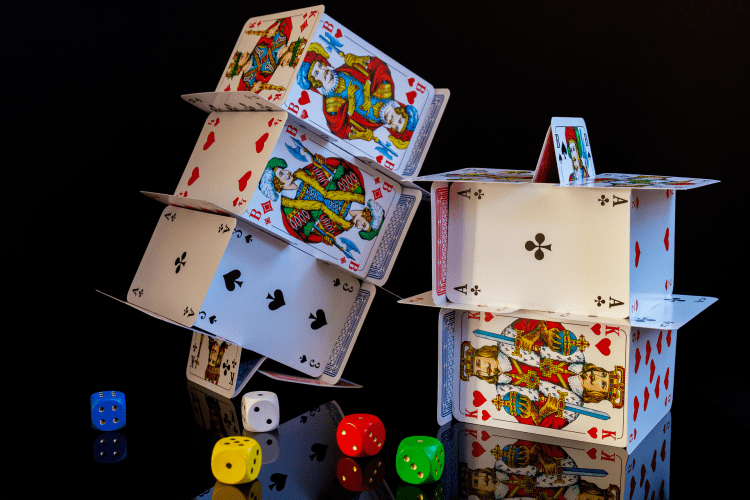Occasionally, card games develop a bit of a local spin – sometimes involving just a slight chance to the rules to accommodate local flavor. Here are some of them:
Local Card Rules

Local Card Rules
by Alex J Coyne © 2018 Great Bridge Links
Card games have standardized, international rules that they developed over decades of play, trial and error. One of the best references for card game rules overall (and a must-have for the bookshelf of any serious card aficionado) is the Official Rules of Card Games. But occasionally, card games develop a bit of a local spin – sometimes involving just a slight chance to the rules to accommodate local flavor. Here are some of them:
Poque: The Origin of Poker
Did you know that poker has its origins in a game called “poque” that was first played in New Orleans back in 1803? This is according to Encyclopedia Brittanica: Apparently it was only later that English settlers started playing the game and adapted it to their own, changing the name to Poker and setting down the rules. From there, we know many variations of poker exist – including 3 card poker, Texas Hold’Em, Pai Gow Poker and more.
Texas Hold’Em: Poker 2.0
Poker underwent an evolution to the poker we know today, and then spread like wildfire throughout the rest of the United States. Arguably, once it reached Texas it turned into what we know now as Texas Hold’Em Poker, favored by a huge amount of modern players. Sources note that Texas Hold’Em found its way to Las Vegas in the 60s by way of a group of traveling Texans.
Omaha Poker
Of course, that’s not all. There’s also Omaha poker. According to Omaha Poker Set, “the history of Omaha poker begins in Detroit.”, where it first popped up in the seventies as a game called “Twice Three”. This version of poker is instead played with four cards instead of five, and according to our source is well-played in the South and Northwest areas of the US.
Want to know more about the ins and outs of betting? Check out Grand National betting tips here.
Chinese Blackjack
Chinese Blackjack is a spin on the popular card game of Blackjack, also known as 21 Point and most often encountered in Asia. The rules are pretty much the same as regular old Blackjack, except for the occurrence of what’s known as special hands. Special hands in Chinese Blacjack include ban-ban (ace and ace), ban-luck (an ace and 10, J, Q and K, whereby his bet against the dealer is doubled) reaching fifteen (which is called a “free hand”, and calls for a reshuffle if said player requests) and triple-sevens – of course, a particularly lucky way to reach 21.
You can read more about Chinese Blackjack here. You might’ve also heard of Spanish 21, which ironically was first introduced in casinos based in Las Vegas, Nevada!
Mau Mau
Mau Mau is a card game known by many names: In the UK, it’s apparently known as Peanuckle – with no relation whatsoever to the card game Pinocle! It’s also known as Switch, Neunerln (in Bavaria) and as Pesten in the Netherlands. The rules are easy: Think of Uno with a regular deck of cards! Players are dealt five cards each, and cards are matched. You can check out the rules or play it for free online at Gameduell (in Dutch).








